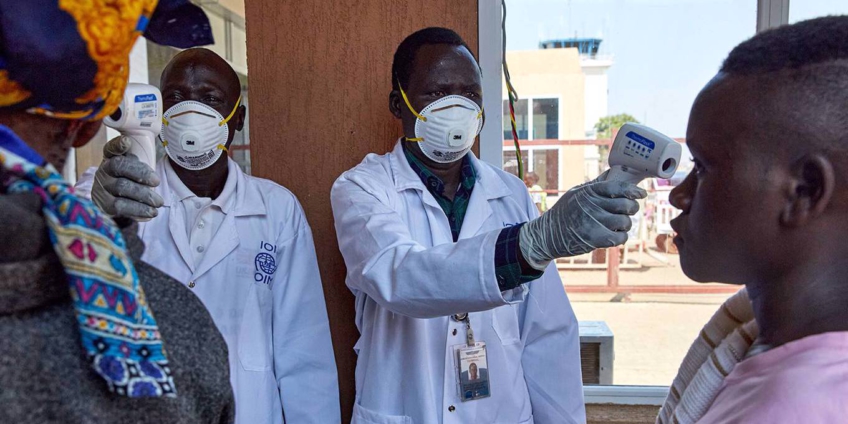How long are you ill for?
For four out of five people Covid-19 will be a mild disease, a bit like flu.
Symptoms include a fever and dry cough. You may feel grotty for a few days but you should be back to normal within a week or so of symptoms appearing.
Lots of people may not even know that they are infected - we are unsure about this but it would be very positive news if that is the case because it would build up the level of so-called herd immunity in society.
If the virus gets well established in the lungs it can cause breathing difficulties and pneumonia. About one in seven people may need hospital treatment, and about one in two critical care - such things as a ventilator and oxygen.
In China, those who got most sick were in hospital for around three weeks. While many died, the vast majority of those who fall ill will recover, even if they are elderly or have underlying health conditions.
How long does the virus stay active on surfaces?
It varies a lot on the type of surface. On hard surfaces - like door handles, lift buttons, kitchen worktops, it is probably around 48 hours, although some previous research on coronaviruses has found they can survive for perhaps a week in the right conditions.
On soft surfaces like clothes, it will survive far less long, so if you have a coat that has virus on and you don’t wear it for a day or two the virus shouldn’t be active any more.
Remember, simply touching an infected surface will not give you Covid-19.
You have to then pass the virus to your mouth, nose or eyes so that’s why we need to stop touching our faces when out and about.
Is it safe to swim in a public pool?
The water in most swimming pools contains chlorine, a chemical which can kill viruses. So it should, technically, be safe to use a swimming pool as long as it is properly chlorinated.
But many countries, including the UK, are now recommending people avoid public places where possible. You could still catch the virus from an infected person in a changing-room or building if they contaminate surfaces, such as door handles.
Someone with the virus could also spread it to others through coughs and sneezes if they come into close contact.
There are a number of ways you can avoid catching or spreading the virus.
If you recover from coronavirus are you immune?
Well, it is too soon to tell. This virus has only been around since the end of December, but from experience with other viruses and coronaviruses, you should have antibodies to the virus which will protect you.
With Sars and other coronaviruses, we tended not to see reinfection. There have been some reports from China of people who are released from hospital subsequently testing positive but we're not sure about those tests.
Latest Stories
-
Ghana-Russia Centre to run Russian language courses in Ghana
34 minutes -
The Hidden Costs of Hunger: How food insecurity undermines mental and physical health in the U.S.
1 hour -
18plus4NDC marks 3rd anniversary with victory celebration in Accra
4 hours -
CREMA workshop highlights collaborative efforts to sustain Akata Lagoon
4 hours -
2024/25 Ghana League: Heart of Lions remain top with win over Basake Holy Stars
5 hours -
Black Queens: Nora Hauptle shares cryptic WAFCON preparation message amid future uncertainty
5 hours -
Re-declaration of parliamentary results affront to our democracy – Joyce Bawah
6 hours -
GPL 2024/25: Vision FC score late to deny Young Apostles third home win
6 hours -
Enhancing community initiatives for coastal resilience: Insights from Keta Lagoon Complex Ramsar Site Workshop
6 hours -
Family Health University College earns a Presidential Charter
6 hours -
GPL 2024/25: Bibiani GoldStars beat Nsoatreman to keep title race alive
6 hours -
GPL 2024/25 Bechem United keep title hopes alive with narrow win over FC Samartex
6 hours -
2024/25: Dauda Saaka scores as Asante Kotoko beat Dreams FC
6 hours -
M.anifest reflects on galamsey’s devastation 11 years after ‘No Shortcut to Heaven’
7 hours -
We’ll have the last laugh – Sammy Gyamfi slams EC’s “cantata” re-collation
7 hours

